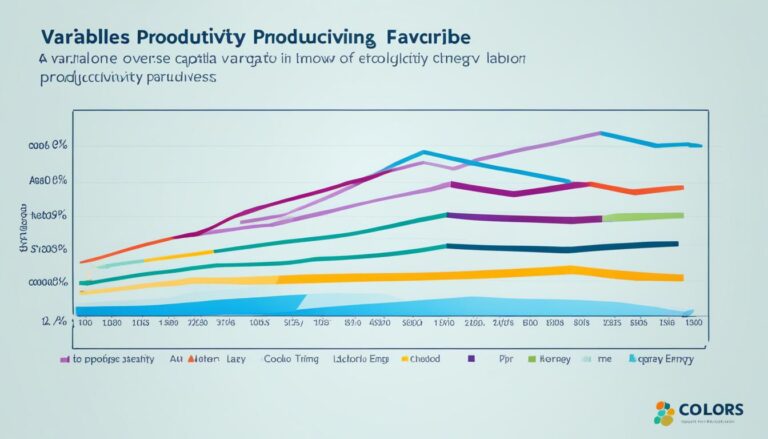Boost Your Sales Game with Productivity Tools

Are you tired of spending valuable selling time on administrative tasks and email management?
If so, you’re not alone. Studies have shown that sales representatives spend only a fraction of their time actually selling, while the rest is devoted to non-revenue-generating activities. This can severely impact sales efficiency and hinder your ability to reach your sales targets.
But what if there was a way to improve your sales efficiency, boost your sales performance, and increase your overall productivity? The answer lies in leveraging the power of sales productivity tools.
By incorporating effective sales tools into your daily workflow, you can streamline your sales processes, automate repetitive tasks, and create more time for what really matters – selling. These tools are designed to enhance sales productivity, improve organization and communication, and ultimately drive growth for your business.
Key Takeaways:
- Sales productivity tools can help you save time and improve efficiency in your sales process.
- By automating repetitive tasks, you can focus more on selling and generating revenue.
- Effective sales tools can enhance organization and communication within your sales team.
- Investing in the right sales productivity tools can give you a competitive edge in the market.
- Choosing the right tools that align with your specific needs and goals is crucial for success.
Understanding Sales Productivity and Its Importance
Sales productivity is a vital factor in the success of any business. It refers to the rate at which sales team members convert leads into customers, taking into account the costs involved in the process. Optimizing sales productivity is crucial as it directly impacts resource allocation, profits, competitive edge, and employee morale.
Efficient sales processes play a significant role in enhancing sales productivity. By streamlining workflows and eliminating unnecessary steps, businesses can ensure that their sales teams spend more time on revenue-generating activities rather than administrative tasks. This enables them to make the most of their resources and increase their chances of closing deals.
Effective communication is another key element in improving sales productivity. Clear and timely communication between team members, as well as with prospects and customers, enhances collaboration, minimizes misunderstandings, and accelerates the sales cycle. Integration with other departments, such as marketing and customer service, ensures a cohesive approach and maximizes the overall efficiency of the sales process.

The use of technology tools is also instrumental in boosting sales productivity. Sales automation software, customer relationship management (CRM) systems, and other digital solutions offer functionalities that streamline and simplify various aspects of the sales process. They provide valuable insights, automate repetitive tasks, and enable real-time data analysis, empowering sales teams to make data-driven decisions and seize opportunities for growth.
Investing in sales productivity not only leads to increased profits but also provides a competitive edge in the market. Businesses that effectively leverage sales productivity tools can deliver exceptional customer experiences, which in turn foster loyalty and drive customer acquisition. Moreover, by optimizing resource allocation and minimizing inefficiencies, organizations can allocate their resources more strategically, resulting in improved profitability.
Enhancing sales productivity also has a positive impact on employee morale. By minimizing the burden of mundane and repetitive tasks, sales teams can focus on meaningful work, engage more with prospects, and enjoy a sense of accomplishment. This, in turn, boosts motivation, job satisfaction, and overall performance, creating a positive work environment and contributing to long-term success.
Overall, sales productivity plays a critical role in the success of businesses. By implementing efficient sales processes, enabling effective communication, utilizing technology tools, and prioritizing resource allocation, organizations can optimize their sales performance and gain a competitive advantage in the market.
Choosing the Right Sales Productivity Tools
When it comes to driving sales efficiency and maximizing productivity, choosing the right sales tools software is essential. With a wide range of options available, it’s important to consider various factors to ensure that the tools you select align with your organization’s unique needs and goals.
Integration Capabilities
Integration capabilities are a crucial aspect to consider when evaluating sales productivity tools. Look for software that seamlessly integrates with your existing systems and processes, allowing for smooth data exchange and collaboration across different platforms. This integration will enable your sales team to work more efficiently and avoid time-consuming manual data entry.
Customization
Every sales team is unique, so it’s important to choose tools that offer customization options. This allows you to tailor the software to match your specific workflows and sales processes. Customization empowers your team to work in a way that suits them best, enhancing their effectiveness and overall productivity.
Ease of Use
Sales tools should be user-friendly and intuitive. Look for software that is easy to navigate and requires minimal training. An intuitive interface reduces the learning curve, allowing your team to quickly adopt new tools and incorporate them into their daily routines.
Scalability
As your business grows, so will your sales team. Choose sales tools software that can scale with your organization. Scalability ensures that the software will continue to meet your needs as your team expands, providing a seamless experience without the need for frequent tool changes or complex migrations.
Training and Support
Having access to comprehensive training resources and reliable support is essential when implementing new sales productivity tools. Look for providers that offer training sessions, documentation, and responsive customer support to ensure a smooth and successful integration process.
Cost Effectiveness
Consider the cost effectiveness of the sales tools software you choose. While it’s important to invest in high-quality tools, ensure that the benefits they provide align with their price. Look for solutions that offer a good balance between functionality and affordability, maximizing your return on investment.
Real-Time Data Access
Real-time data access is crucial in today’s fast-paced sales environment. Ensure that the sales tools software provides real-time analytics and reporting capabilities, enabling your team to make data-driven decisions and stay up-to-date on the latest sales performance metrics.
Automation Features
Automation features can significantly streamline sales processes and save time for your team. Look for tools that offer automation capabilities, such as lead scoring, task reminders, and email templates. These features allow your sales representatives to focus on building relationships and closing deals, while routine tasks are automated.
Security Measures
When dealing with sensitive customer data, security is of utmost importance. Choose sales tools software that prioritizes data protection and implements robust security measures. Look for features such as encryption, user access controls, and regular software updates to ensure the safety of your data and maintain customer trust.
Feedback and Reviews
Before making a final decision, it’s important to consider feedback and reviews from other users. Look for testimonials and case studies from companies similar to yours to gain insights into their experiences with the sales tools software you are considering. This feedback can provide valuable insights into the software’s effectiveness and potential areas of improvement.
By carefully evaluating the integration capabilities, customization options, ease of use, scalability, training and support, cost effectiveness, real-time data access, automation features, security measures, and feedback from other users, you can choose the right sales productivity tools that will empower your sales team to excel and drive your business towards success.

Top 10 Sales Productivity Tools for 2023
In 2023, the sales landscape is evolving rapidly, and staying competitive requires the right tools and technologies. Here are the top 10 sales productivity tools that can revolutionize your sales process and empower your team to achieve exceptional results:
-
OKR Software
OKR (Objectives and Key Results) software enables organizations to set clear goals and track progress effectively. By aligning individual and team objectives with company goals, OKR software enhances focus, accountability, and results.
-
Performance Management Software
Performance management software provides a comprehensive platform for monitoring and evaluating the performance of sales reps. It enables managers to provide timely feedback, identify areas of improvement, and reward top performers, ultimately driving productivity and growth.
-
CRM Software
CRM (Customer Relationship Management) software is a vital tool for managing customer interactions and sales processes. Leading CRM software, such as Agile CRM and Apptivo, offer robust features for contact management, opportunity tracking, sales forecasting, and more.
-
Email Tracking Software
Email tracking software allows sales reps to gain valuable insights into recipient engagement by tracking email opens, clicks, and responses. With this data, sales teams can optimize their email outreach strategies and focus on the most interested prospects.
-
Sales Engagement Platforms
Sales engagement platforms combine various tools, such as email automation, call tracking, and analytics, into a single platform. These platforms enable sales teams to efficiently engage with prospects, automate repetitive tasks, and improve overall sales efficiency.
-
Document Management Software
Document management software helps sales teams organize and share important sales collateral, contracts, and other documents. With features like version control and online collaboration, sales reps can easily access and share documents, enhancing productivity and collaboration.
-
Lead Generation Tools
Lead generation tools leverage advanced algorithms and data analytics to identify potential customers and generate high-quality leads. These tools eliminate the guesswork from prospecting, enabling sales teams to focus their efforts on the most promising opportunities.
These sales productivity tools offer a range of features and functionalities to streamline sales processes, improve communication, enhance performance management, and generate leads. By incorporating these tools into your sales strategy, you can empower your team to achieve exceptional results and drive growth in 2023 and beyond.
Conclusion
Sales productivity is crucial for businesses looking to boost sales efficiency, increase sales performance, and enhance overall sales productivity. By leveraging the right sales productivity tools, organizations can streamline their sales processes, save time, and improve overall performance.
The top sales productivity tools for 2023 include OKR software, performance management software, CRM software, email tracking software, sales engagement platforms, document management software, and lead generation tools. These tools offer a range of features and functionalities to help businesses achieve their sales goals.
By utilizing these tools effectively, businesses can maximize their sales productivity and drive growth in a competitive market. Whether it’s automating tasks, streamlining communication, or generating leads, these sales productivity tools provide the necessary tools and resources to enhance sales performance and boost efficiency.
FAQ
What are sales productivity tools?
Sales productivity tools are software or applications that help businesses improve their sales efficiency, boost sales performance, and enhance overall sales productivity. These tools automate tasks, streamline processes, and optimize resource allocation to maximize sales results.
Why is sales productivity important?
Sales productivity is important because it leads to improved resource allocation, increased profits, a competitive edge, and enhanced employee morale. By optimizing sales productivity, businesses can achieve higher sales efficiency and drive growth in a competitive market.
What factors should I consider when choosing sales productivity tools?
When choosing sales productivity tools, you should consider factors such as integration capabilities, customization options, ease of use, scalability, training and support, cost effectiveness, real-time data access, automation features, security measures, and feedback from other users. It’s important to select tools that align with your organization’s needs and goals and can seamlessly integrate with existing systems and processes.
What are the top sales productivity tools for 2023?
The top sales productivity tools for 2023 include OKR software, performance management software, CRM software (such as Agile CRM and Apptivo), email tracking software, sales engagement platforms, document management software, and lead generation tools. These tools offer a range of features and functionalities to streamline sales processes, improve communication, enhance performance management, and generate leads.
How can sales productivity tools improve my sales performance?
Sales productivity tools can improve your sales performance by streamlining your sales processes, saving time, and optimizing resource allocation. These tools automate administrative tasks, improve communication, enhance performance management, and generate leads, all of which contribute to improved sales efficiency and higher sales performance.






